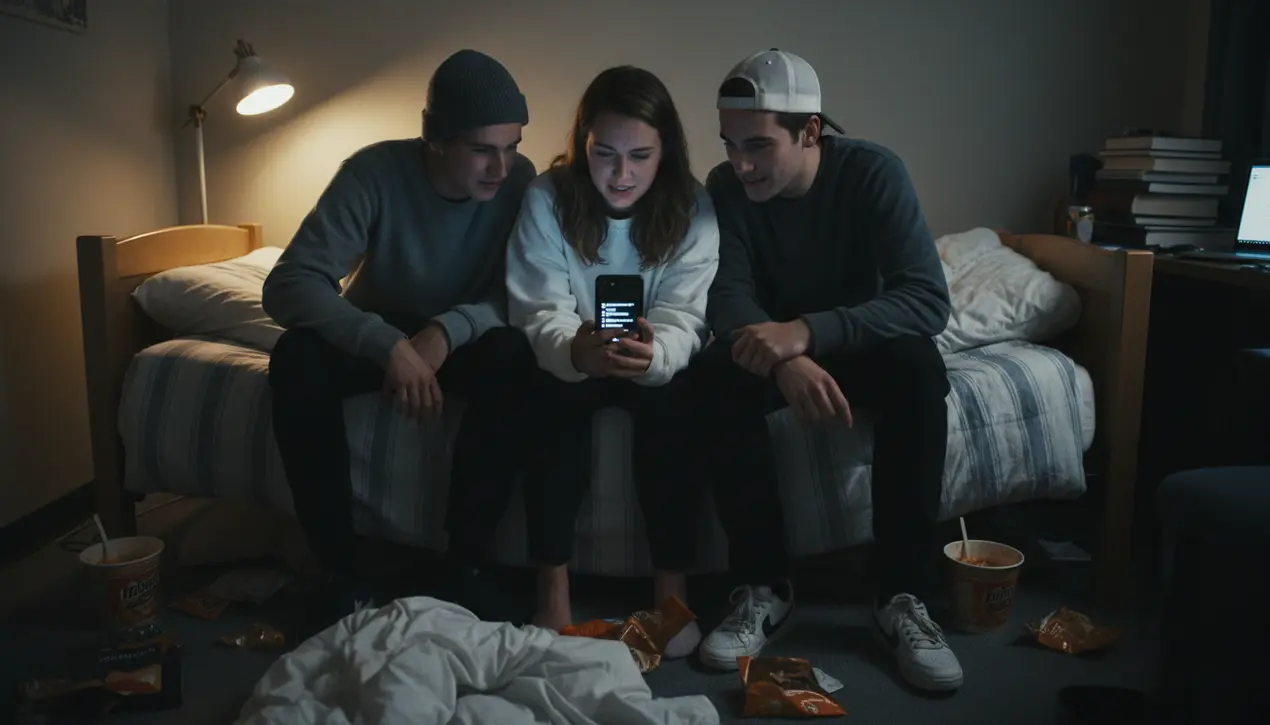
AIenterprise aiAI in Finance and Banking
Gen Z Swipes Left on Dating Apps: Is AI the Key to Rekindling Romance?
LA
Laura Bennett
12 hours ago7 min read5 comments
The collective groan from a dorm room, a group of friends crowded around a single phone swiping through Hinge, was a quintessential college experience. For many in Gen Z, that initial foray into dating apps was brief—a week of dead-end chats before deletion.This pattern is now the norm: mobile analytics firm AppsFlyer reports that 69% of dating apps downloaded in 2025 were deleted within a month, up from 65% in 2024. This mass exodus signals a profound cultural shift for a generation that once relied on these platforms as a digital lifeline during the pandemic.According to Wendy Walsh, a psychology professor and dating expert, Gen Z lost crucial years of social learning to COVID-19, leaving many terrified of phone calls and in-person meetings. Ironically, dating apps, designed to connect people, now embody their deepest social anxieties.Yet, adoption remains highest among young adults; Pew Research data shows 53% of under-30s have used a dating site or app, compared to 37% of those aged 30-49. An informal poll of Syracuse University students revealed a consistent theme of disappointment.One student noted conversations that never progressed beyond texting, while another confessed to using apps primarily for casual encounters. Dating coach Grace Lee highlighted the social stigma, with college students feeling that a vibrant social life means you 'shouldn't' need an app.This sentiment is widespread—a Forbes Health survey found 79% of Gen Z users experience dating app fatigue, investing significant time with little return. Walsh points to the 'paradox of choice' as the culprit, where an endless stream of potential matches devalues each one, trapping users in a perpetual swiping loop.The data confirms a preference for organic connection: a Kinsey Institute survey found over 90% of Gen Z prefer meeting people offline at social gatherings, classes, or bookstores. This generation, prioritizing authenticity and self-care, finds that apps fail to deliver the natural spark they seek.The financial impact is stark. Match Group, parent company of Tinder and Hinge, issued a disappointing revenue forecast as it struggles to convert casual users into paying subscribers.Tinder's revenue fell 3% with a 7% drop in payers, while Bumble reported a 10% revenue decline and laid off 30% of its staff. In contrast, Hinge emerges as a bright spot, with Gen Z comprising 56% of its users and a 17% increase in paying customers, its focus on intentional dating striking a chord.As Match Group COO Spencer Rascoff noted, the issue isn't that Gen Z avoids apps—they flock to Hinge. Now, the industry is betting that AI can win them back, but Gen Z is notably wary.Students expressed discomfort with overt AI, feeling it undermines authenticity. Social psychologist Justin Lehmiller confirms most singles don't want AI involved in their intimate lives, questioning if the technology will attract or repel users.A Bloomberg survey echoes this, revealing Gen Z's skepticism of AI-generated profiles and messages. In response, apps are adopting a subtle approach.Tinder is pivoting to 'low-pressure, authentic experiences,' using AI behind the scenes for security and photo selection rather than facilitating conversations. Bumble's CTO emphasized using AI to enhance, not replace, human connection.Hinge's AI tools, which provide prompt feedback and safety filters, are so integrated that users often don't realize they're there. As Hinge CEO Justin McLeod asserts, generative AI should support people, not supplant them, because authenticity is paramount. For Gen Z, the goal isn't algorithmic perfection but the beautifully messy reality of human connection.
#Gen Z
#dating apps
#AI integration
#user engagement
#Hinge
#Tinder
#Bumble
#featured
Stay Informed. Act Smarter.
Get weekly highlights, major headlines, and expert insights — then put your knowledge to work in our live prediction markets.
Related News
Comments
Loading comments...
© 2025 Outpoll Service LTD. All rights reserved.